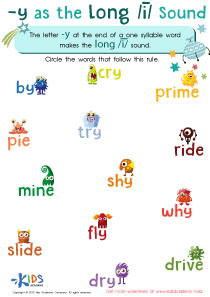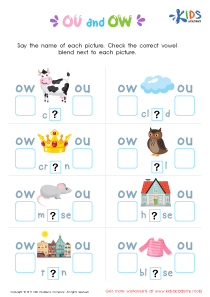Vowel Recognition Normal Long Vowels Worksheets for Ages 3-8
6 filtered results
-
From - To
Unlock the world of reading with our Vowel Recognition Normal Long Vowels Worksheets, designed specifically for children ages 3-8. These engaging and educational worksheets help young learners identify and differentiate between short and long vowel sounds. Through colorful illustrations and fun activities, children enhance their phonics skills, improve reading fluency, and build a strong foundation in literacy. Perfect for both classroom and at-home learning, these worksheets provide a variety of exercises to keep kids captivated while mastering vowels. Dive into a world of vowels and watch your child’s reading skills soar!
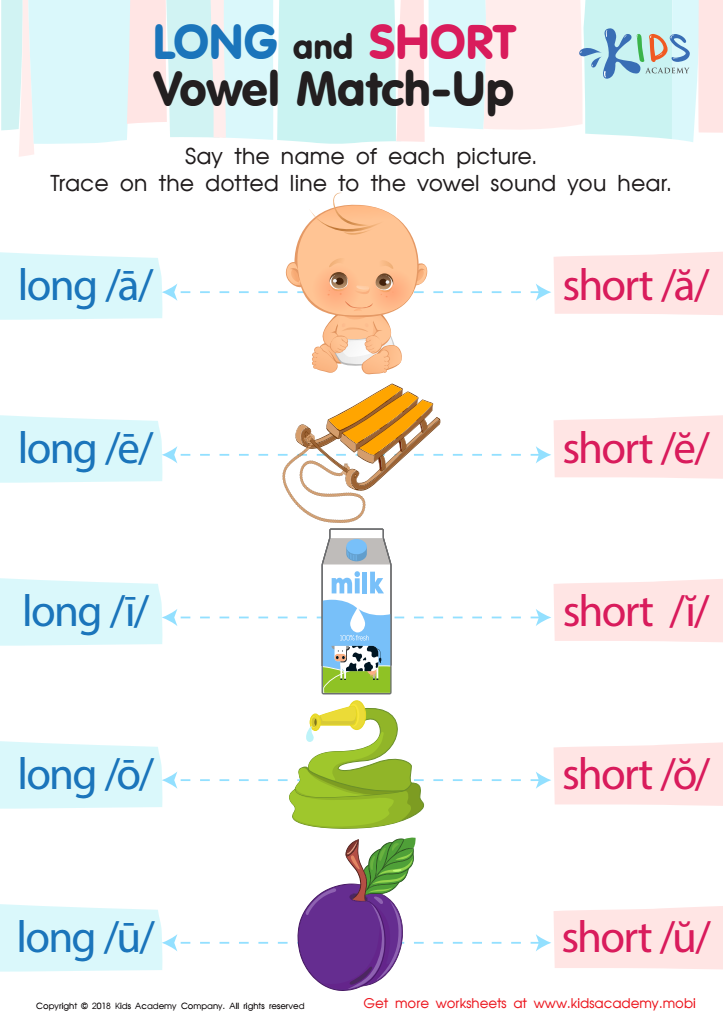

Long and Short Vowel Match up Reading Worksheet


Let's Check Long Vowels: Assessment Worksheet


Long Vowel Maze /o/ and /i/ Worksheet
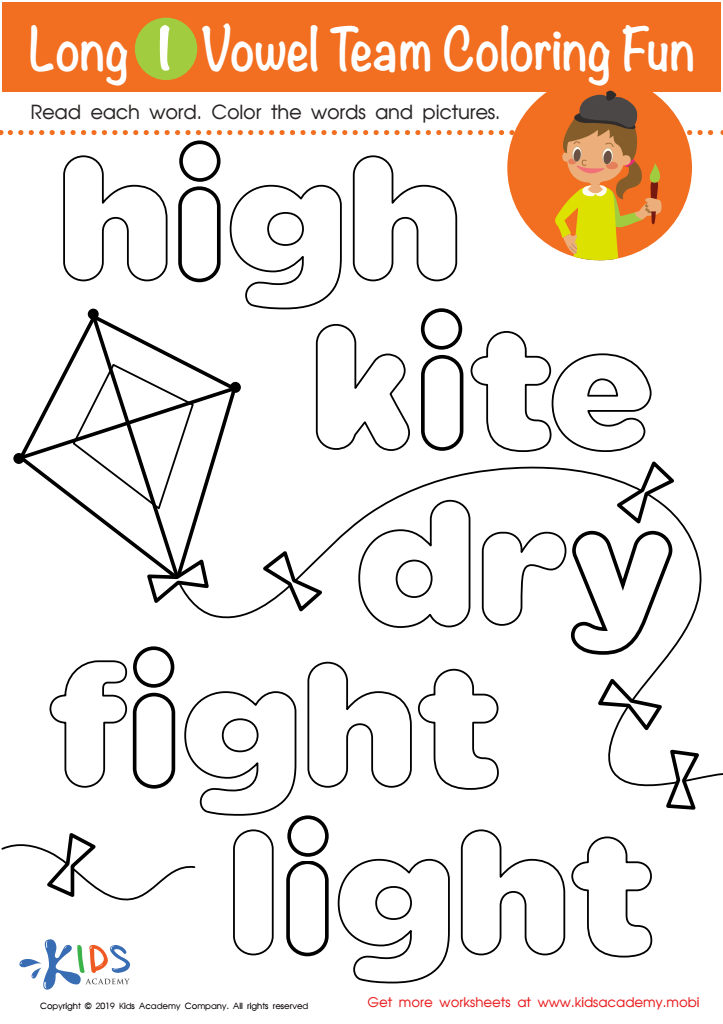

Long I Vowel Team Coloring Worksheet
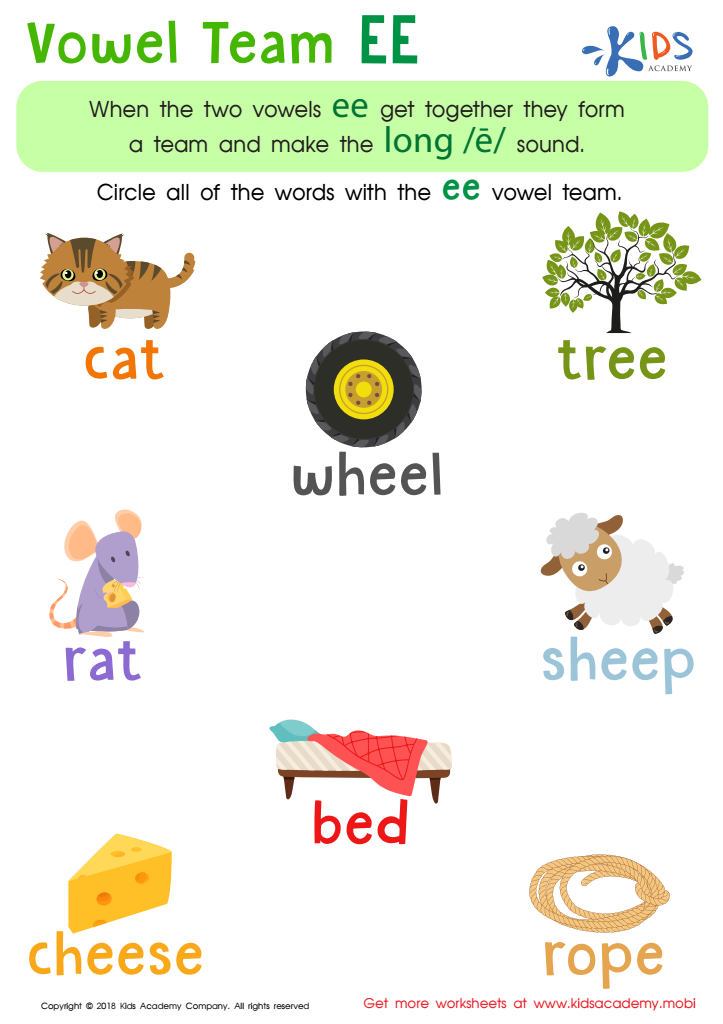

Reading: Vowel Team EE Worksheet


Long and Short Vowel Sentences: Assessment Worksheet
Vowel recognition is fundamental for early literacy development, particularly for children ages 3-8. During these formative years, understanding the difference between normal (short) and long vowels equips children with the necessary skills for effective reading and writing. Recognizing vowel sounds can significantly improve phonemic awareness, a key predictor of a child's ability to decode new words, which directly affects reading fluency and comprehension.
For parents and teachers, focusing on vowel recognition at this stage also aids spelling. Children who grasp the concept of long and short vowels can more accurately spell words, as they start to understand common spelling patterns and rules. This mastery forms the backbone for future literacy skills, ensuring children are less likely to encounter difficulty with more complex words and sentence structures as they progress academically.
Moreover, early proficiency with vowels boosts a child's confidence. As their reading improves, children are more likely to engage with books and other reading materials, fostering a lifelong love of learning. Therefore, both parents and teachers should prioritize vowel recognition exercises, incorporating fun activities like games, songs, and interactive reading to instill these crucial skills in young learners. This early investment sets the stage for academic success and a positive educational experience.

 Assign to My Students
Assign to My Students






